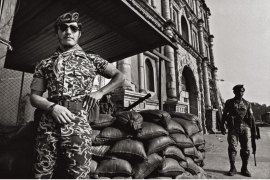Chandra Cooper is the great-granddaughter of McKinley and Geneva Morganfield, known professionally as Muddy Waters. She is President of the Muddy Waters Original Jam Out Museum (MOJO). In efforts to keep Muddy Waters’s music legacy alive, she has spearheaded the organization’s effort to transform his former Chicago home into a museum and cultural center.
The community’s reaction to the museum has been very positive and uplifting. The City of Chicago and the Blues community have been beneficial in wanting to help also. People have been enthusiastic in wanting to lend a hand and donate time, funding, and saying they have artifacts to donate.
Chandra Cooper has enjoyed a supportive and collaborative relationship with the City of Chicago, Landmarks Illinois, Preservation Chicago, and other community and City officials.
The Muddy Waters home was on its way to landmark nomination at the June 3, Commission on Chicago landmarks meeting until 4th Ward Alderwoman Sophia King interfered. None of the usual barriers to development threatened the progress of the MOJO museum – no difficult contractors, rising costs, or even COVID-19 complications. Yet Alderwoman King insisted that the home be pulled from the Commission’s upcoming agenda. Ald. King took steps to slow or halt Black house museums without ever talking to the owners, organizers, or stakeholders.
An ordinance King introduced to the City Council late last year would outlaw museums in properties with some residential zoning classifications, and require community meetings with neighbors and the approval of a special use permit through the city Zoning Board of Appeals in others.
N’DIGO sat down and chatted with Chandra Cooper and talked about her great-grandfather Muddy Waters’s great legacy and what the house means to her and her family as she prepares to turn the home into a museum and cultural center.
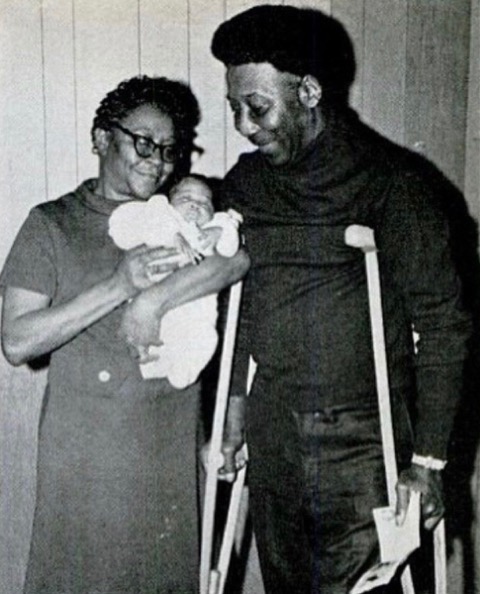
N’DIGO: You are Muddy Waters great-granddaughter, tell me about yourself.
Chandra Cooper: I was born in 1970. I went straight home from the hospital to my great-grandparent’s home. My mom, Amelia Cooper, was a teenage mom and is the granddaughter of Muddy Waters. We lived there until I was three years old. Muddy Water’s wife, Geneva died in 1973. We move to Westmont Illinois. I considered my great-grandparents as my parents. I was their child.
My great-grandmother told Muddy to always take care of me. I grew up knowing immense love, and I was spoiled. I was her baby and a princess. She wanted me to have a fruitful and prosperous life.
I am fighting so hard for the legacy of this house because my great grandparents invested so much in me. Muddy took care of me. He died in 1983 when I was 13. As a father, he was supportive and assured I was educated. I was in his will, he bypassed his children, I am a living heir and owner of the estate, of Mr. McKinley Morganfield (Muddy’s real name). I graduated from Columbia College in marketing and communications.
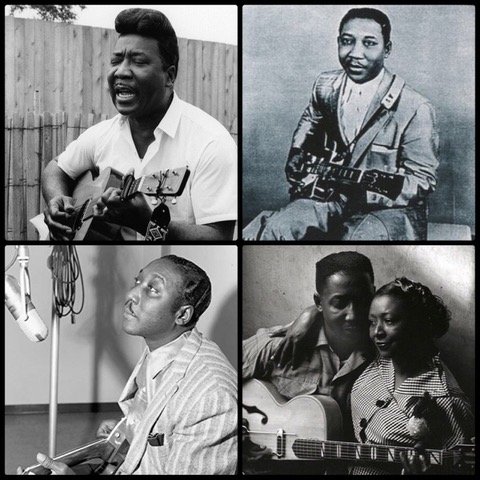
When were you aware that you were connected to musical royalty?
I knew he was as a Blues singer. People came in and out of our house like The Rolling Stones, and Eric Clapton. They were visitors and I knew who they were and who he was. That’s what musicians did at that time. They broke bread with him. I knew what he meant to the music business. I saw more white musicians visit than black. They were in awe of him. Everyone came to Muddy’s house.
What does honoring the legacy of your Great Grandfather Muddy Waters mean to you?
I am in his will and his honor means so much to me. I am the only great-grandchild in his will. Having ownership of this house is personal. This is something I have to do. I was chosen to do and I am giving back to my great-grandparents. I owe them, the honor and respect to make sure this house becomes a living legacy not only for Chicago but the Blues community and the Blues world. It is a matter of respect.
How long has the property been owned by the family?
Muddy purchased the home in 1954. The property was part of the estate. The executive of the estate wanted to sell the property. I wanted to keep it in the family. I bought the property located at 4339 South Lake Park Avenue so that it could stay in the family.
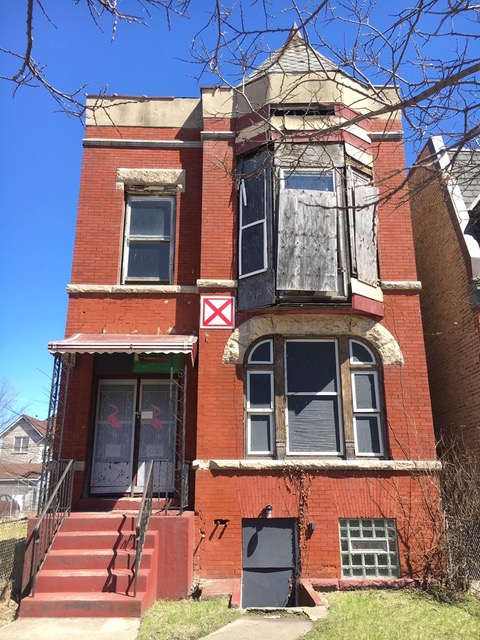
Describe the condition of the house when you purchased it?
The house needs to be rehabbed. It’s a two-storied, single-family house, with 4 bedrooms, 2 baths, and a basement.
You received a $50,000 grant from the National Trust for Historic Preservation from its African American Cultural Heritage Action Fund that helped restore and renovate the home with plans of turning it into the Muddy Waters MOJO Museum. How did the funds help?
Those funds will be used to stabilize the critical areas of the house for preservation.
You have a supportive and synergetic relationship with the City of Chicago, Landmarks Illinois, Preservation Chicago, and other community and City officials. How confident were you in getting the MOJO Museum nominated for Landmark nomination?
We have a landmark status with a group of houses and there are certain things we can and cannot do. For example, the front of the house is untouchable. The city suggested for we get a landmark designation. He is considered the King of Chicago Blues. We want his legacy to be told and shared and preserved. There is a mural downtown about 20 feet tall of Muddy Waters on a State Street Building, I have to preserve his living quarters.

When you hear the name Ald. Sophia King, what thoughts come to your mind? Do you think Ald. King was disrespectful for not talking to owners of Black house museums?
The first thing is the ordinance. The ordinance is not good for the current climate, because it puts up road blocks. For over 40 years, you could establish a house museum like Margaret Burroughs with DuSable Museum that started in her house. The ordinance states zoning and community criteria. It changes the process. We were glad to see the ordinance withdrawn.
Have you had any negative feedback from the residents in the community about establishing a Black house museum?
The community feedback is overall positive. They want the museum. They want to make sure that it is not loud or overcrowded in the area. We are working closely with the owner of One Stop Foods & Liquors Grocery Store for parking, which accommodates 100 cars. The traffic pattern is not an issue, because we have direct parking across the street, for free.
What is your collaboration with the Chicago House Museum Coalition?
We are working with other women who own significant historical properties that will soon be house museums. We will work together to protect the legacies of special buildings in the African American Community.
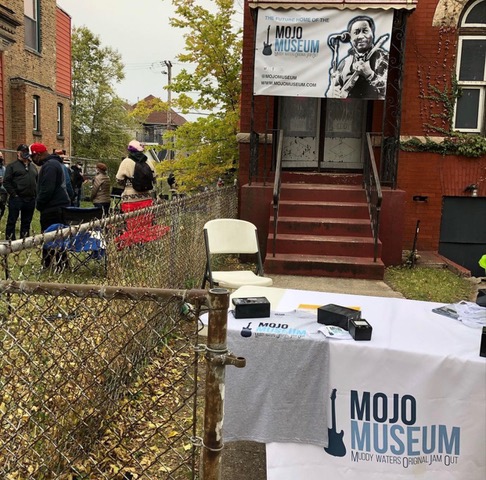
What are the plans for the museum?
Plans for the MOJO Museum will be a place where you can learn about Muddy Waters and Chicago blues. We will have class on all matters relating to the blues, guitar playing lessons, artifacts of Muddy Waters and a small library and his music.
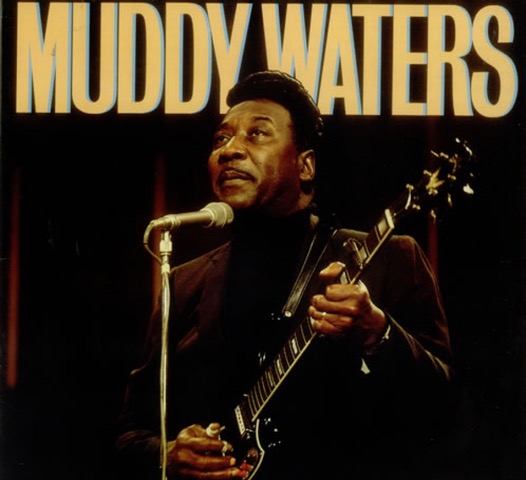
What do you think your great-grandfather Muddy Waters would say about your herculean efforts to preserve his rich history and his legacy?
Basically that I could be anything that I wanted to be and to let no one stop me. He was big on making sure the young people had the tools to be educated and move differently than he did in society. He was a Mississippi sharecropper. He made sure we understood the importance of education. He wanted us to move upward in an effective way and go back to help others so that we could do better.
What’s the best advice that you were given by Muddy Waters?
Plans for the house will be a place where you can learn about Muddy Waters and learn about Chicago blues. We will have class on matters relating to the blues, teach guitar playing, have available artifacts of Muddy Waters and a small library and his music.




